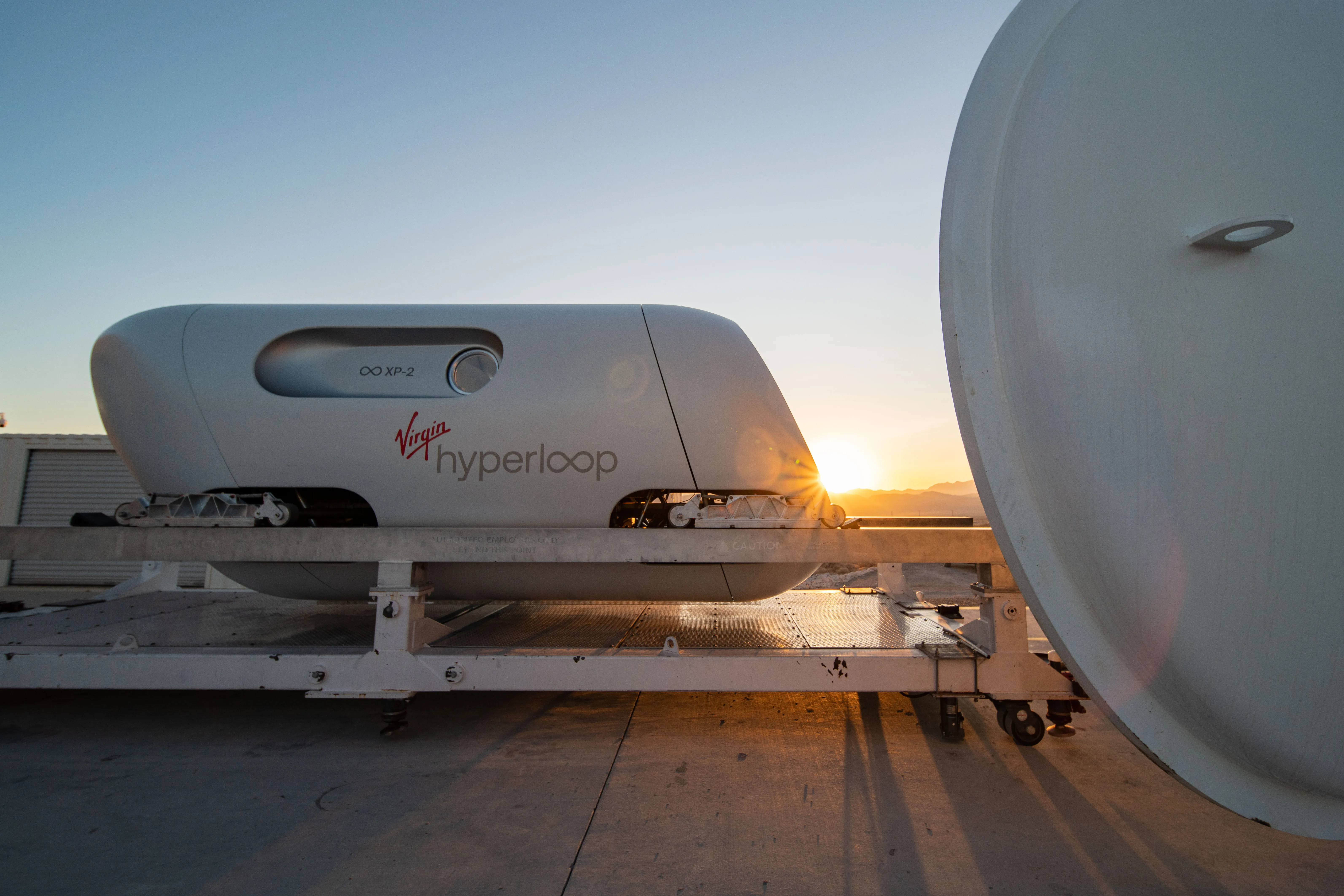
Virgin Hyperloop has tested human travel in a hyperloop pod in the Nevada desert.
Virgin co-founder Josh Giegel and director of passenger experience Sara Luchian took a ride in the XP-2 vehicle at Virgin Hyperloop's 500m DevLoop test site in Las Vegas.
The company says it has carried out more than 400 unoccupied tests at the site.
Giegel says: “Today, we took one giant leap toward that ultimate dream, not only for me, but for all of us who are looking towards a moonshot right here on Earth.”
Luchian says: “Hyperloop is about so much more than the technology. It’s about what it enables. To me, the passenger experience ties it all together. And what better way to design the future than to actually experience it first-hand?”
The two-seater vehicle – designed by Big (Bjarke Ingels Group) and Kilo Design – was built to demonstrate that passengers can safely travel in a hyperloop vehicle.
According to Virgin, the XP-2 vehicle demonstrates many of the safety-critical systems that will be found on a commercial hyperloop system.
It is equipped with a control system that can detect off-nominal states and rapidly trigger appropriate emergency responses, the company adds.
Jay Walder, CEO of Virgin Hyperloop, says: “I can’t tell you how often I get asked ‘is hyperloop safe?"
"With today’s passenger testing, we have successfully answered this question, demonstrating that not only can Virgin Hyperloop safely put a person in a pod in a vacuum environment, but that the company has a thoughtful approach to safety which has been validated by an independent third party.”
The testing campaign was overseen by independent safety assessor Certifer.
Virgin Hyperloop's production vehicle will be larger and able to carry up to 28 passengers.
Last month, Virgin Hyperloop confirmed the opening of a certification centre in West Virginia to aid its plans for commercial operations in 2030.










